Zohar Aizenbud
On the Weaknesses of Reinforcement Learning for Neural Machine Translation
Jul 03, 2019



Abstract:Reinforcement learning (RL) is frequently used to increase performance in text generation tasks, including machine translation (MT), notably through the use of Minimum Risk Training (MRT) and Generative Adversarial Networks (GAN). However, little is known about what and how these methods learn in the context of MT. We prove that one of the most common RL methods for MT does not optimize the expected reward, as well as show that other methods take an infeasibly long time to converge. In fact, our results suggest that RL practices in MT are likely to improve performance only where the pre-trained parameters are already close to yielding the correct translation. Our findings further suggest that observed gains may be due to effects unrelated to the training signal, but rather from changes in the shape of the distribution curve.
SemEval 2019 Task 1: Cross-lingual Semantic Parsing with UCCA
Mar 06, 2019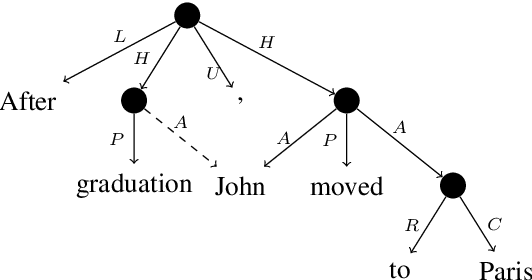
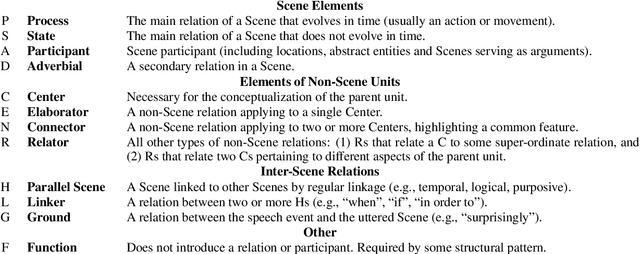
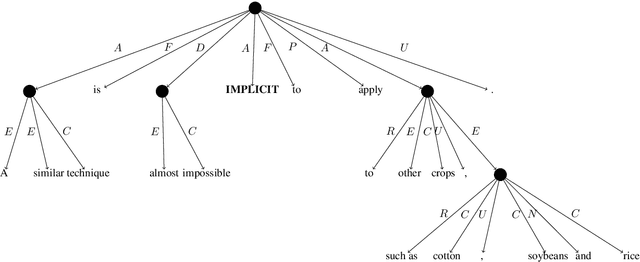

Abstract:We present the SemEval 2019 shared task on UCCA parsing in English, German and French, and discuss the participating systems and results. UCCA is a cross-linguistically applicable framework for semantic representation, which builds on extensive typological work and supports rapid annotation. UCCA poses a challenge for existing parsing techniques, as it exhibits reentrancy (resulting in DAG structures), discontinuous structures and non-terminal nodes corresponding to complex semantic units. The shared task has yielded improvements over the state-of-the-art baseline in all languages and settings. Full results can be found in the task's website \url{https://competitions.codalab.org/competitions/19160}.
SemEval 2019 Shared Task: Cross-lingual Semantic Parsing with UCCA - Call for Participation
Aug 19, 2018
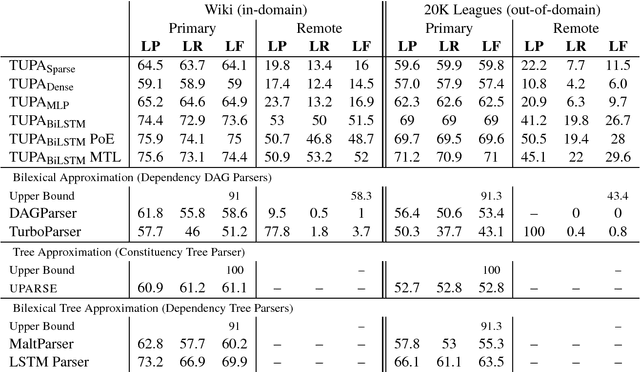

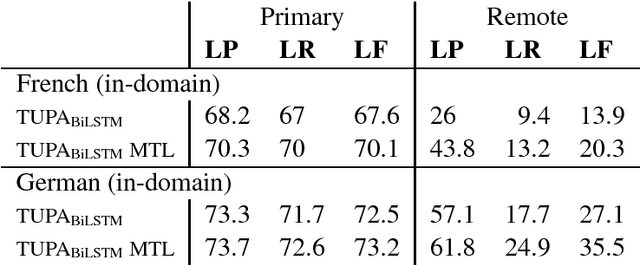
Abstract:We announce a shared task on UCCA parsing in English, German and French, and call for participants to submit their systems. UCCA is a cross-linguistically applicable framework for semantic representation, which builds on extensive typological work and supports rapid annotation. UCCA poses a challenge for existing parsing techniques, as it exhibits reentrancy (resulting in DAG structures), discontinuous structures and non-terminal nodes corresponding to complex semantic units. Given the success of recent semantic parsing shared tasks (on SDP and AMR), we expect the task to have a significant contribution to the advancement of UCCA parsing in particular, and semantic parsing in general. Furthermore, existing applications for semantic evaluation that are based on UCCA will greatly benefit from better automatic methods for UCCA parsing. The competition website is https://competitions.codalab.org/competitions/19160
 Add to Chrome
Add to Chrome Add to Firefox
Add to Firefox Add to Edge
Add to Edge